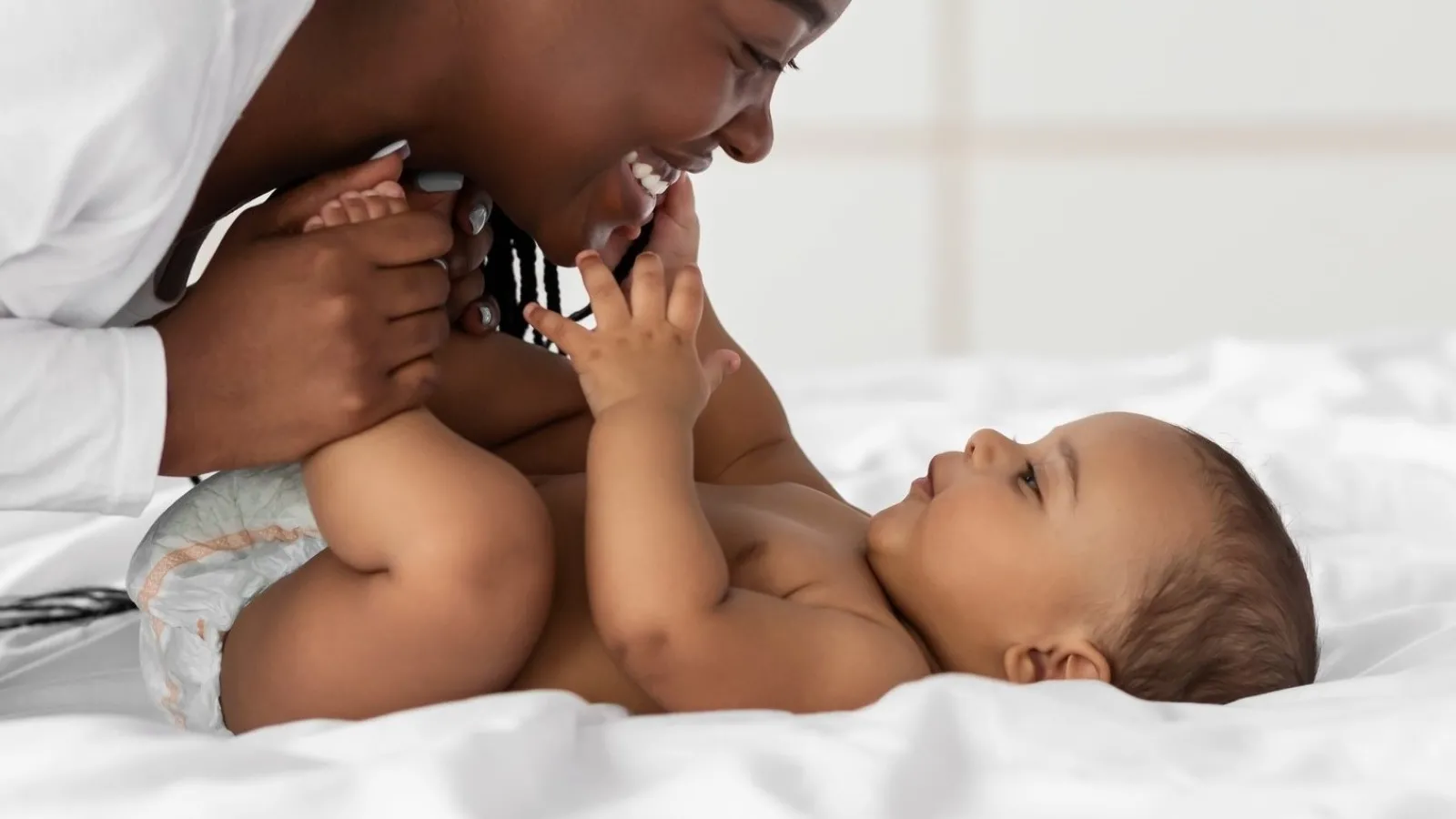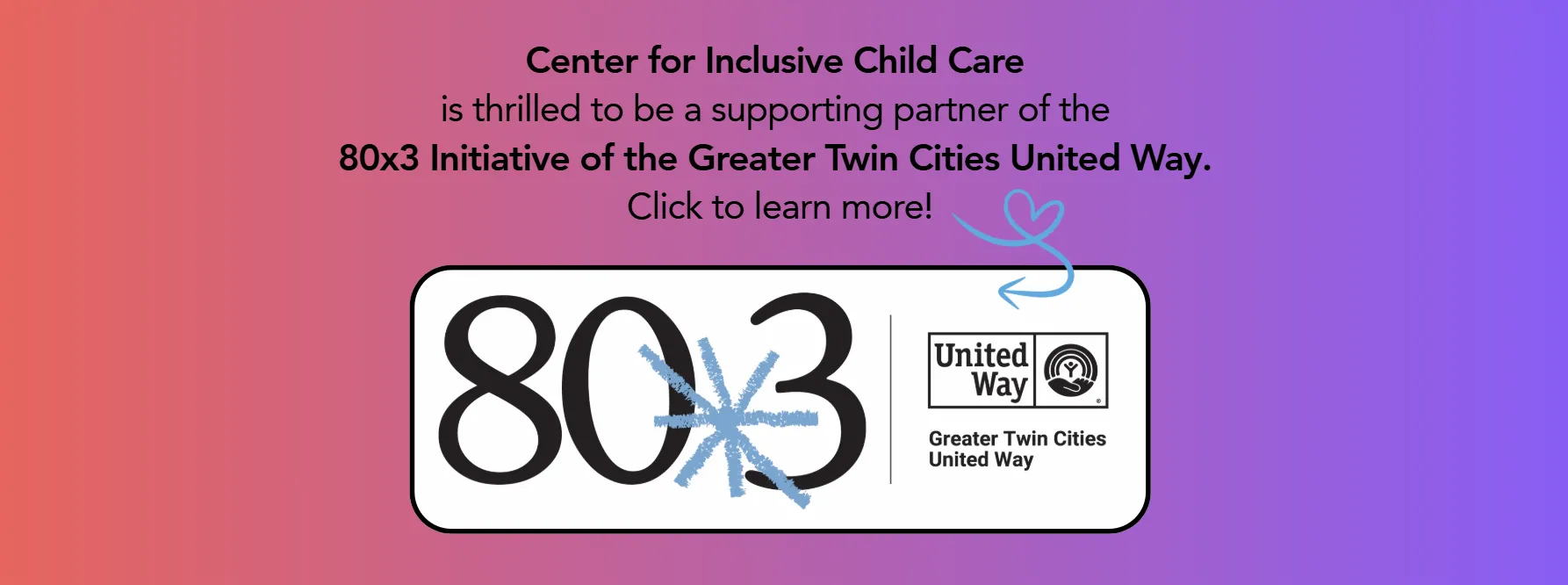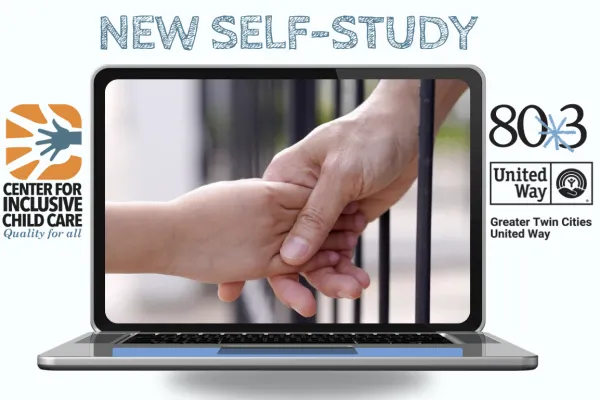
80x3: Resilient from the Start
FREE Resources to Explore
Examine the impact of parental incarceration on early childhood development, focusing on emotional, social, cognitive, and behavioral effects. Explore changes in family dynamics, caregiver challenges, financial strain, and children's trauma responses. Apply trauma-informed care strategies to build resilience, support stability, and reduce negative outcomes.
The content of this self-study was written by Kamyala Howard, MSW, LICSW in partnership with CICC with funds provided by Greater Twin Cities United Way (GTCUW) 80x3 - Resilient from the Start.
Be sure to explore our two-part series of self-study courses on Trauma Responsive/Healing Centered strategies. Both courses are available in English and Spanish!
• Trauma Responsive/Healing Centered Strategies Part 1: Relationships And Environments
• Estrategias centradas en la respuesta/curación del trauma Parte 1: Relaciones y desarrollo
• Trauma Responsive/Healing Centered Strategies Part 2: Self-Regulation For Children And Adults
• Estrategias centradas en la respuesta/curación del trauma Parte 2: Autorregulación para niños y adultos
80x3 Podcast Series - 2025
- NEW 80x3 Podcast Series: Supporting Young Children Through Parental Incarceration
- NEW 80x3 Podcast Series: Bridges, Not Barriers - Reimagining Support for Families
80x3 Podcast Series - 2024
- 80x3 Podcast Series: Focusing on Equity to Create Inclusive and Welcoming Early Childhood Environments - Part 1
- 80x3 Podcast Series: Focusing on Equity to Create Inclusive and Welcoming Early Childhood Environments - Part 2
- 80x3 Podcast Series: Early Childhood Budgets, Boards, and Brain Development - Part 1
- 80x3 Podcast Series: Early Childhood Budgets, Boards, and Brain Development - Part 2
- 80x3 Podcast Series: Early Childhood Budgets, Boards, and Brain Development - Part 3
Additional Podcasts on Supporting Sensory Needs of Young Children
• Additional Resources to Support Your Work with Young Children
The Minnesota Association for Children’s Mental Health (MACMH) and Center for Inclusive Child Care partnered to host this live conversation for professionals in the field of early care and education (funded through the MN Preschool Development Grant).
• The Impact of Identity on Healing-Centered Practice
Pediatric Occupational Therapist Alyssa Mason describes how sensory activities may be used to support all children, with an emphasis on attending to the needs of children who have experienced trauma
• Sensory Strategies as Tools for Self-Regulation and Healing (Part 1)
• Sensory Strategies as Tools for Self-Regulation and Healing (Part 2)
80x3 is an early childhood education and care initiative launched by Greater Twin Cities United Way in 2022. They are on a mission to address and minimize the impacts of childhood trauma and expand our region’s capacity to deliver trauma-sensitive care.
80x3 envisions a world where all young children, their families and caregivers have the support and resources to overcome childhood trauma and thrive.




